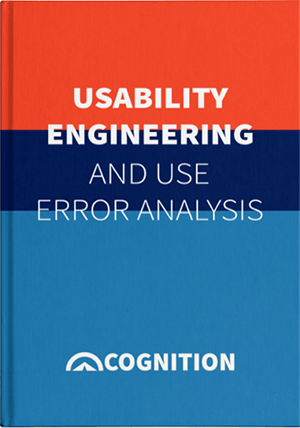Cognition Blog
Our blog navigates product development and compliance for the life science industry. Our solutions save time and money, delivering products with less risk.
At Cognition, our goal is to provide medical device and pharmaceutical companies with collaborative solutions to the compliance problems they face every day, allowing the customer to focus on their products rather than the system used to create them. We know we are successful when our customers have seamlessly integrated a quality system, making day-to-day compliance effortless and freeing up resources to focus on product safety and efficacy.

FDA | Product Development | Risk | Industry Updates | Risk Management | Webinar | Compass MED
By:
Cognition Corporation
August 14th, 2025
Medical devices are becoming more complex, more connected, and increasingly used in home settings by people with varying levels of technical skill. Designing for safety isn’t just good practice—it’s a regulatory and ethical imperative.

FDA | Product Development | Industry Updates | Risk Management | Webinar | Compass BIO | Biopharma
By:
Cognition Corporation
August 1st, 2025
If you missed our recent panel discussion, “From Concept to Compliance: Navigating Risk and Regulatory Submissions Across the Life Sciences,” the full recording is now available to watch on demand.

Subscribe to the blog and get this guide for free

design controls | Testimonial | Compass MED | Traces
By:
Cognition Corporation
January 22nd, 2025
Our latest solution, Compass MED, is a structured data and design control SaaS solution built specifically for medtech companies. Key features include multi-level requirements management, comprehensive risk management, and test management.

design controls | Testimonial | Compass MED | Traces
By:
Cognition Corporation
September 26th, 2024
At Cognition, the success of our customers is key. That’s why our latest product, Compass MED, was designed with 3 key priorities in mind: Improve efficiencies, incorporate quality by design, and enhance risk management and compliance.

Medical Device | Risk Management | Compass | Design | compliance | Regulations
By:
Cognition Corporation
August 5th, 2024
How can medical device manufacturers successfully balance the significant pressures of today’s market? On the one hand, they need to bring new devices to market quickly. On the other hand, devices are becoming much more complex, while at the same time, industry standards and regulations are continuing to evolve. During our recent webinar, three panelists—Nathan Brown, R&D Fellow at Boston Scientific; Mike Casper, System Engineer Manager at Smith & Nephew; and Eric Maas, a former Medtronic executive and founder of Six Sigma Experts—shared their perspectives on how medical device manufacturers can achieve speed to market, safely.

Medical Device | Risk Management | Compass | Design | compliance | Regulations
By:
Cognition Corporation
March 19th, 2024
A Q&A With Gerald Wesel, Cognition Chairman and CEO Gerald Wesel, Cognition’s Chairman and CEO, is responsible for setting the company’s strategic direction. He is known for propelling innovative, disruptive technology companies to next level success, and has previously served in leadership roles at seven startups and four large enterprises. In this Q&A, he provides his take on how medical device development is evolving—and the persistent and emerging challenges that device companies are facing as a result. He also shares some key strategies that device company leaders should be employing to help their organizations adapt and thrive.

By:
Cognition Corporation
February 15th, 2021
Giving customers more time to focus on developing great products. If you are part of a product development team, you know how tedious and time-consuming documentation can be to manage in various word or excel files. We set out to solve that problem over 10 years ago when we launched our solution, Cockpit. Our goal was to provide a unified and scalable environment to enable companies to structure data and automate processes for more efficient and accurate product development.

design controls | Medical Device | Compass
By:
Cognition Corporation
July 27th, 2020
Commonly issued after an FDA inspection, a Form 483 informs a company of observations requiring corrective actions. The Form 483 is often referred to as “Inspectional Observations” as it is a list of conditions or practices that indicate a potential violation of FDA requirements. The form is compiled in order of importance and is considered a snapshot of potential issues; it should not be considered all-encompassing.

By:
Cognition Corporation
November 27th, 2019
There are many immediate short-term benefits a compliance software tool can provide to your life science organization: improved documentation, streamlined day-to-day compliance activities, project data unification, and other advantages. But there are many important long-term benefits that may get overlooked. When deciding to adopt these software tools, it’s important to understand how they can promote growth and innovation at your company.

info@cognition.us
1 (781) 271-9300
24 Hartwell Avenue,
Lexington, Massachusetts 02421
©2026 Cognition Corporation | Privacy Policy